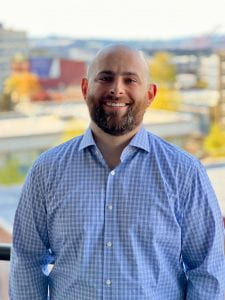 Jake Anderson is an undergraduate student currently earning a Bachelor’s degree in Manufacturing and Supply Chain Management with a minor in Business Analytics at Western Washington University. He shares about his experience working on research projects below.
Jake Anderson is an undergraduate student currently earning a Bachelor’s degree in Manufacturing and Supply Chain Management with a minor in Business Analytics at Western Washington University. He shares about his experience working on research projects below.
1) When did you start working on research with Dr. Warren and in what capacity?
I began working with Dr. Warren in fall quarter of 2021 as one of her faculty assistants, through College of Business and Economics’ Department of Management.
2) What are the different activities you are working on in your projects?
I have been primarily involved in helping with the Anti-Racism Allyship Readiness Questionnaire, which consists of three individual studies. For the project I have compiled potential funding sources, a list of 124 Diversity Equity and Inclusion experts across 10 different US industries, organized some of the IRB application materials, written the methods section for study 1, created the foundation of a Qualtrics survey to be used by the experts in advance of their round table and developed a white paper to highlight and summarize the project.
3) What skills you have developed through your research assistantship?
The main skill I have developed through my work with Dr. Warren is the increased ability and understanding of how to actually do extensive research. I have also gained invaluable insights regarding allyship, DEI, and working on academic studies.
4) What are your ambitions for how you want to use this research experience for your future professional goals?
There are two primary ways that I plan on using my experience in working with Dr. Warren in my future career. First, this work has helped me become a better ally and advocate and I plan on being active in that regard wherever I end up. As I will be in analytics/supply chain, the second way I will use my research skills is to come up with data driven solutions for complex business issues.

